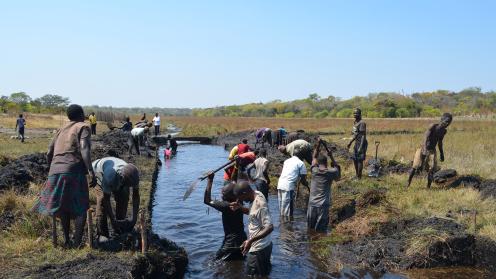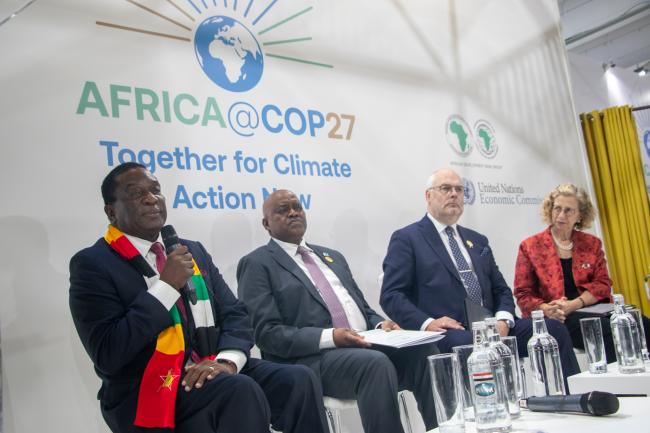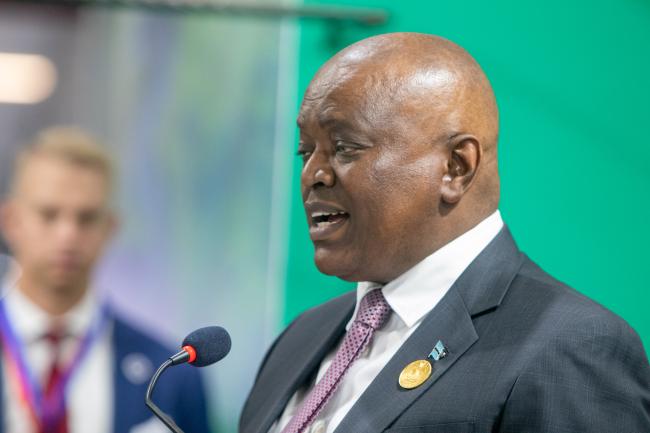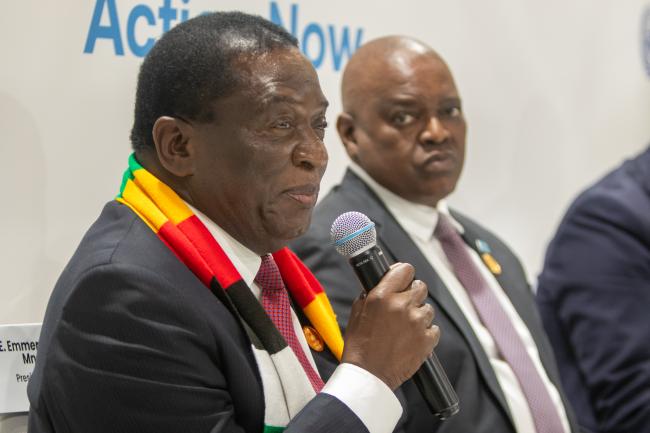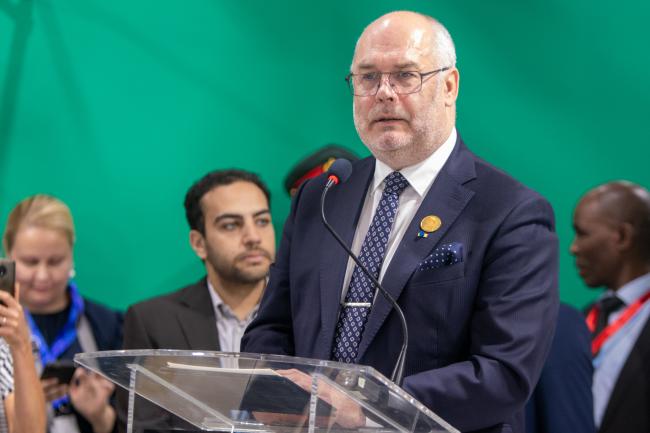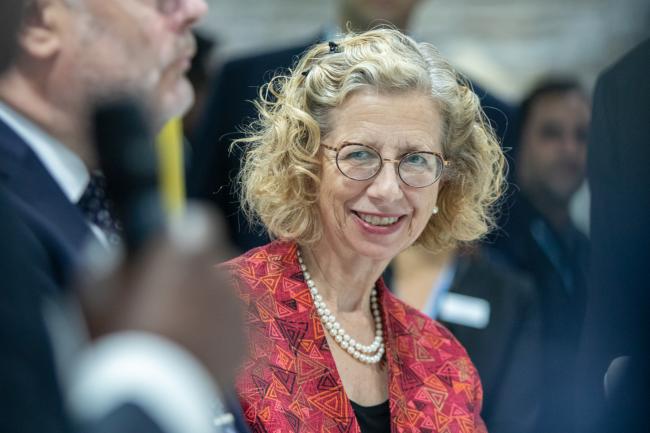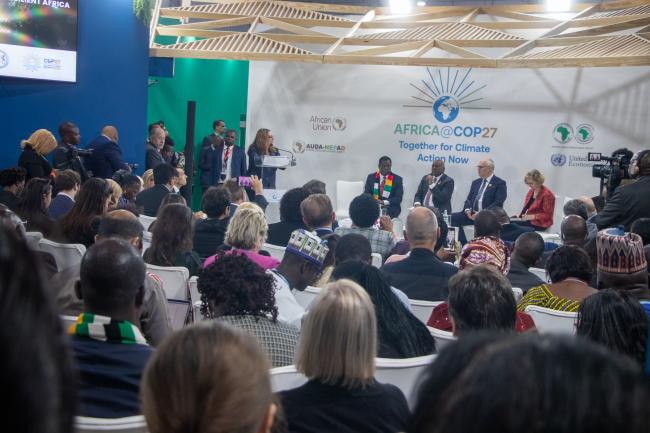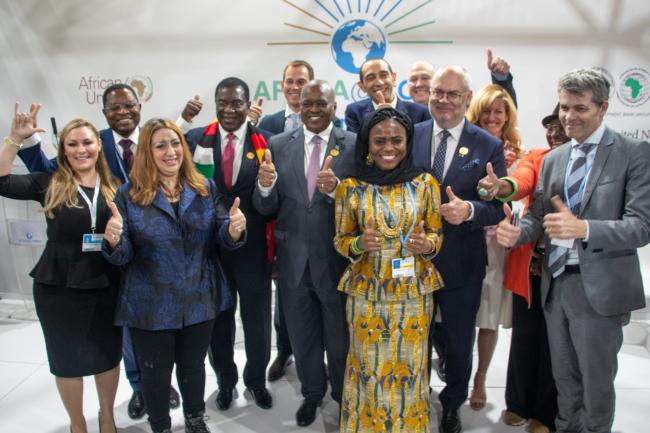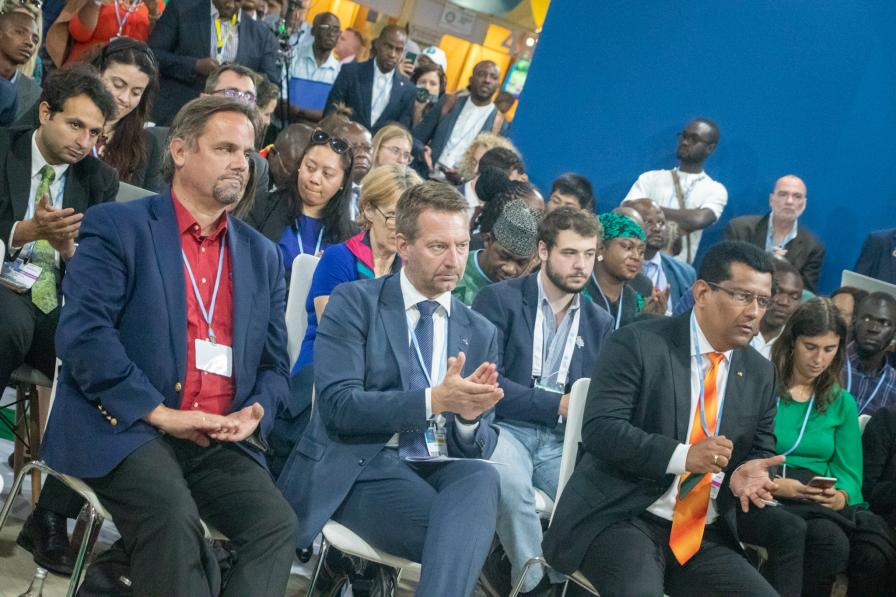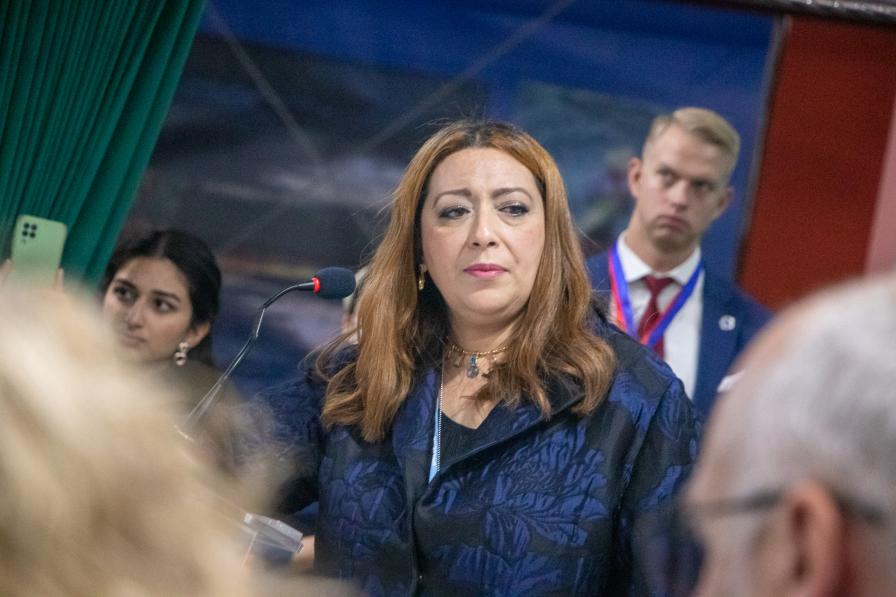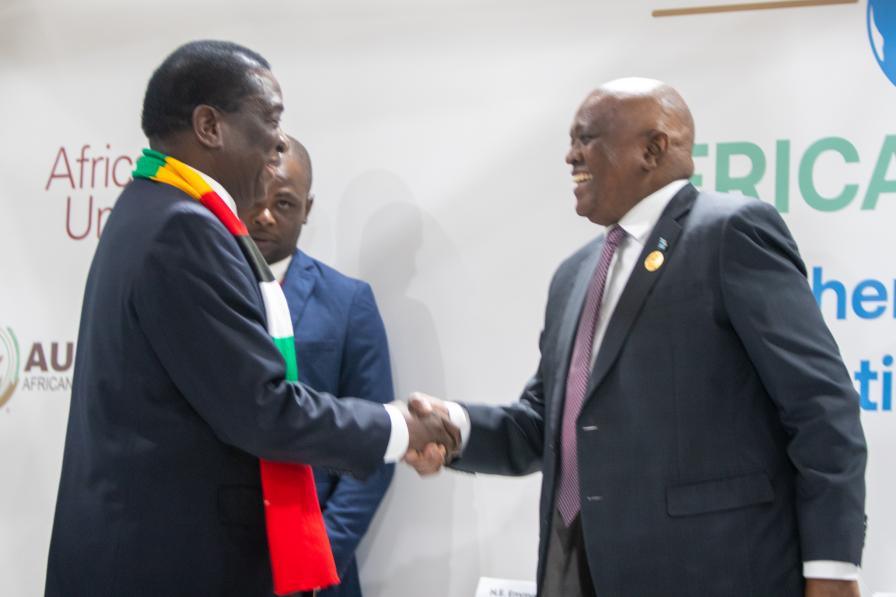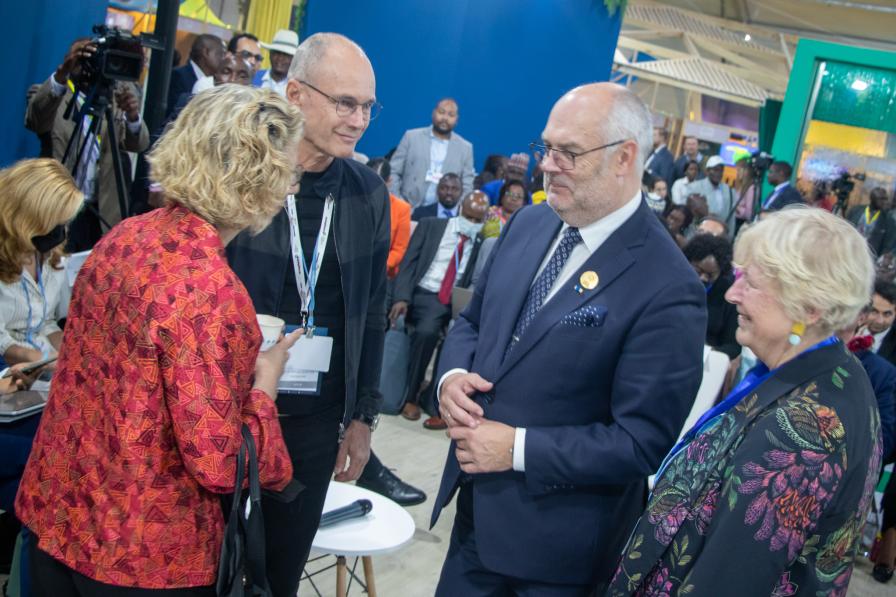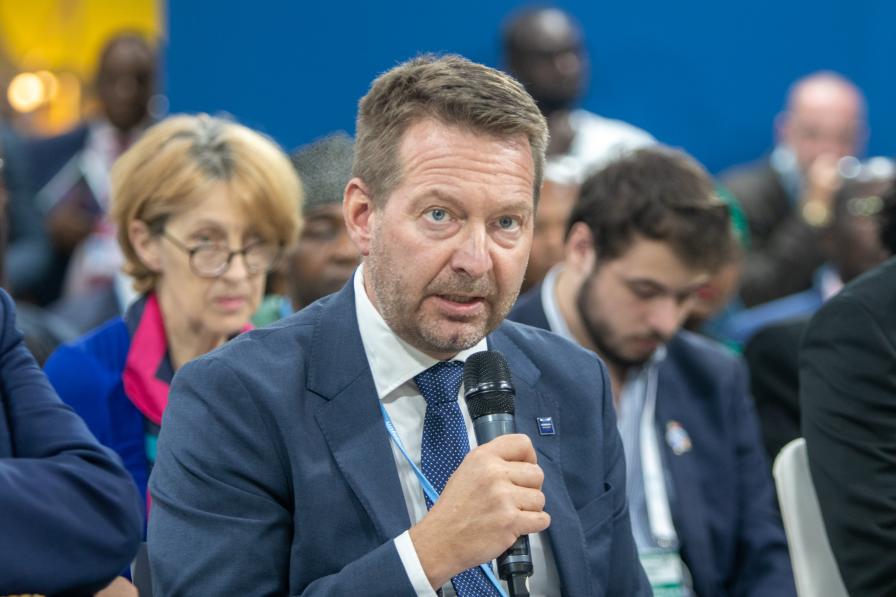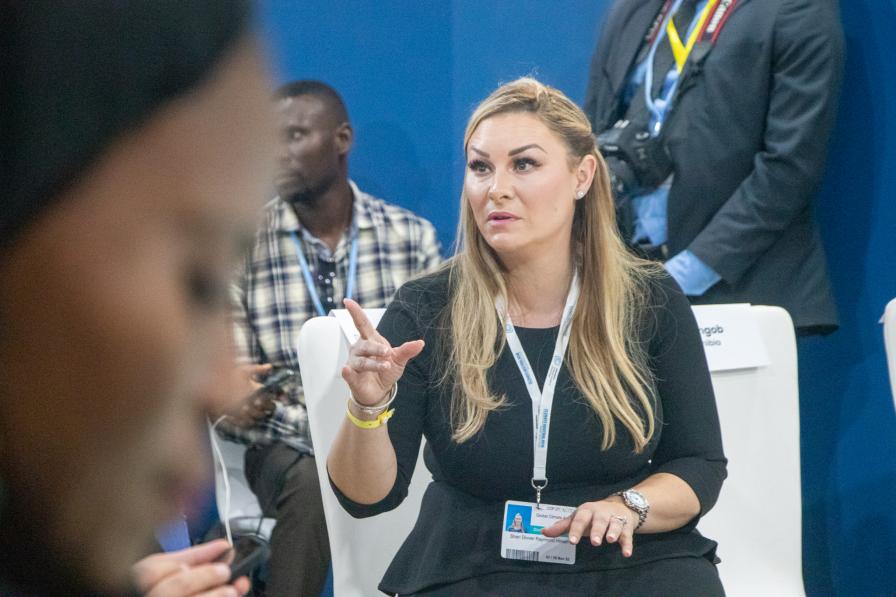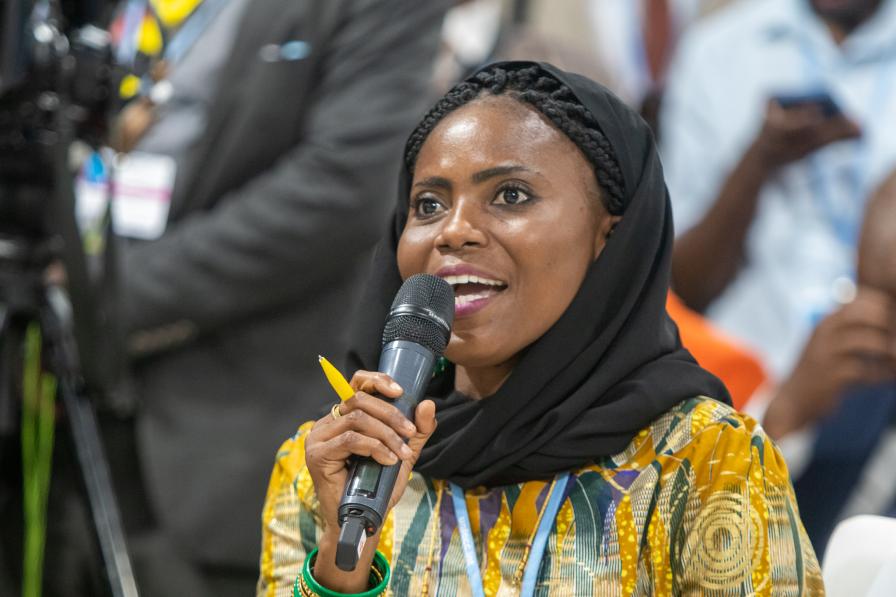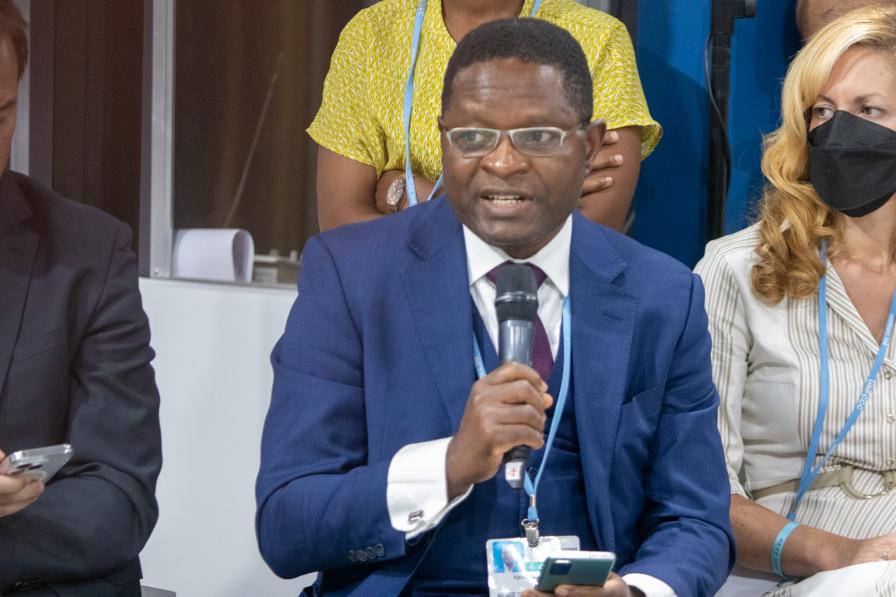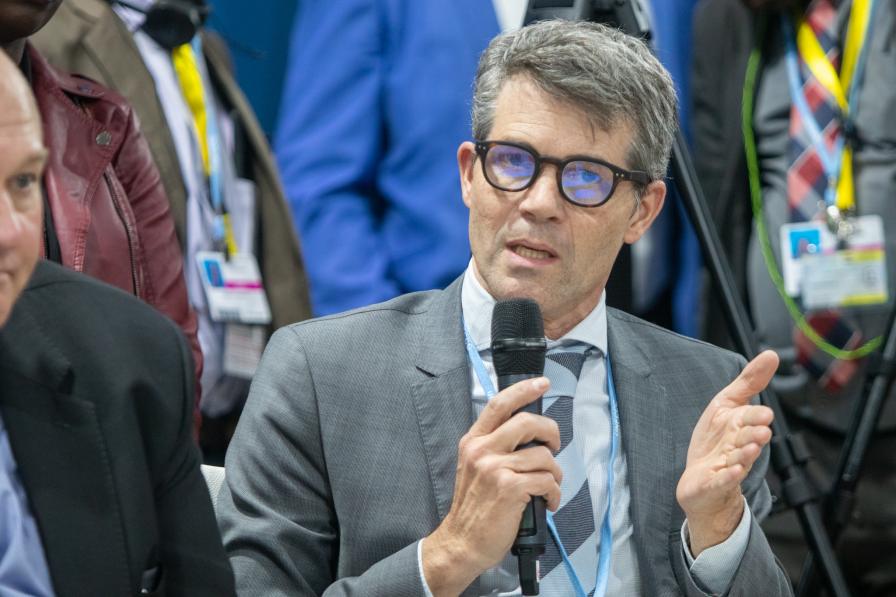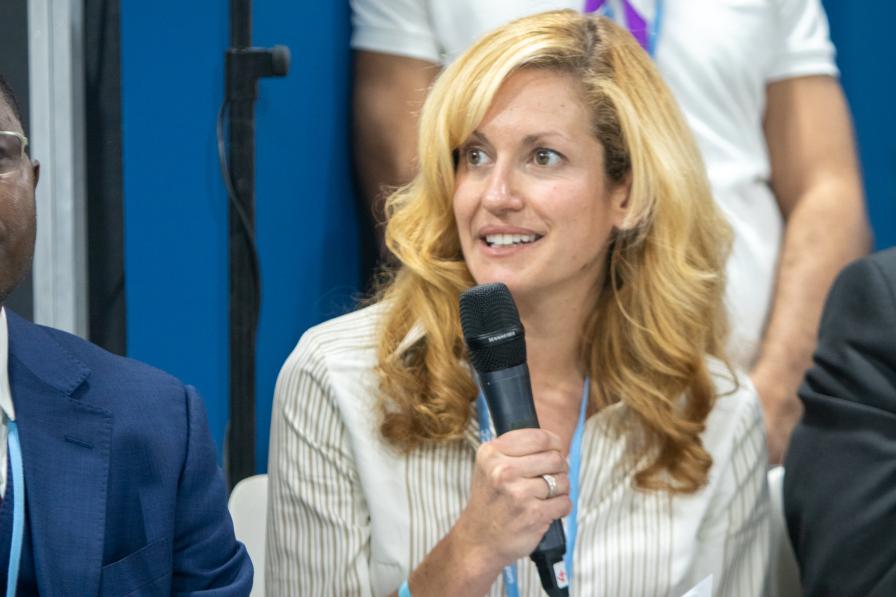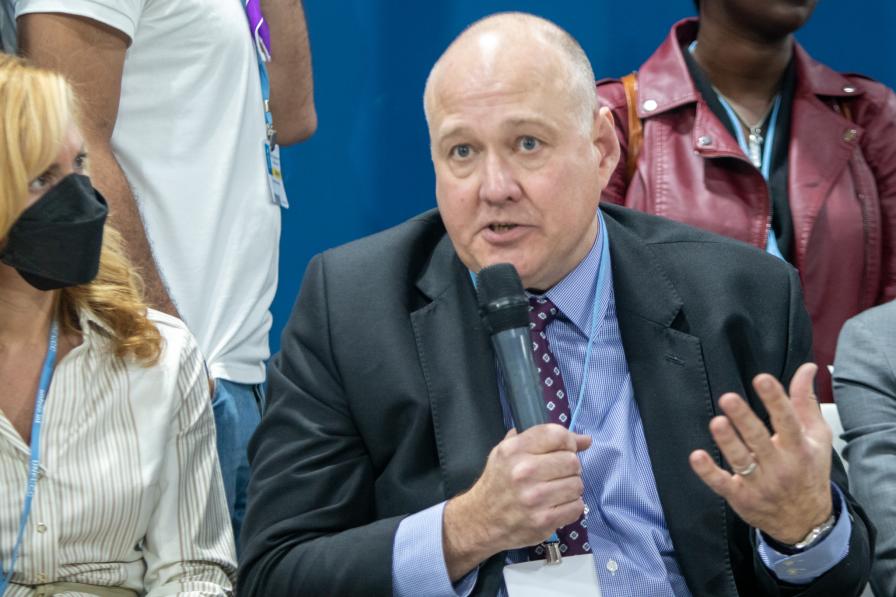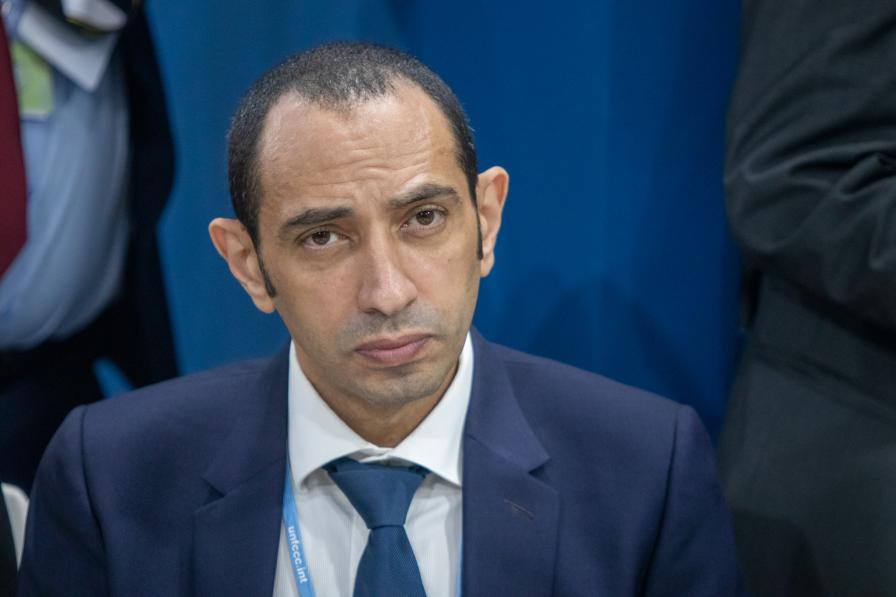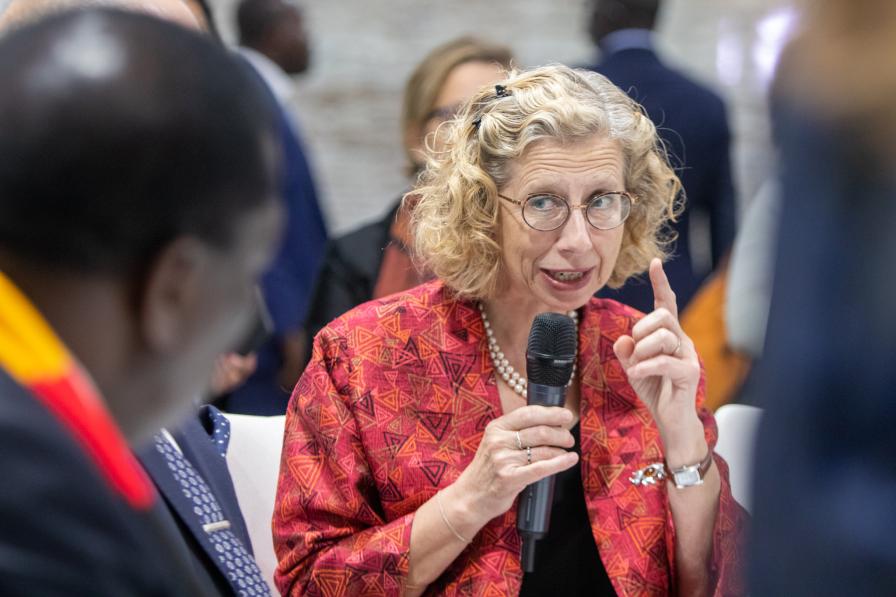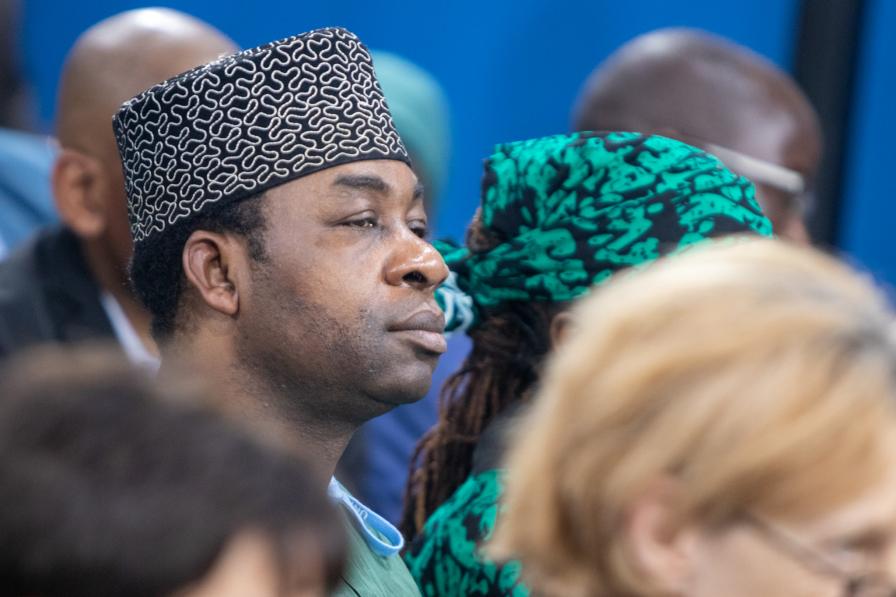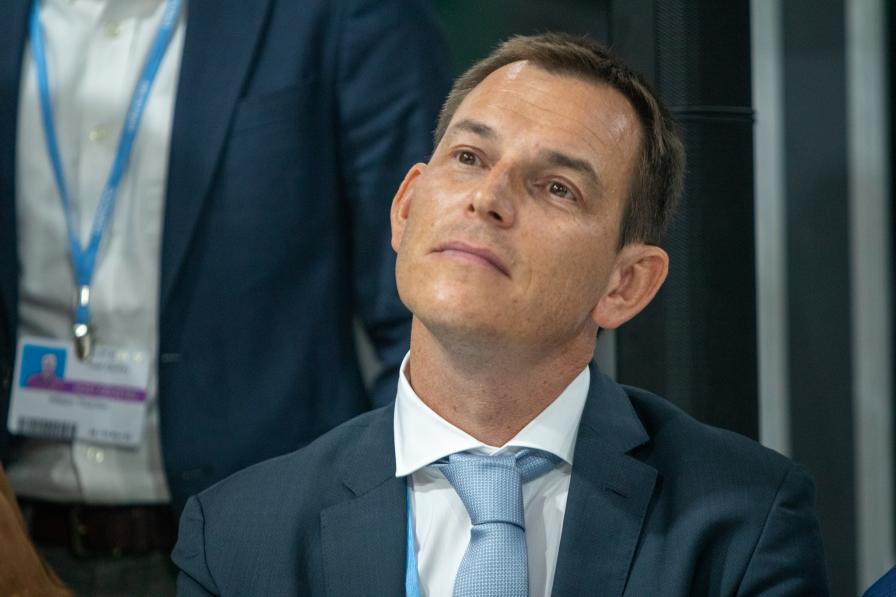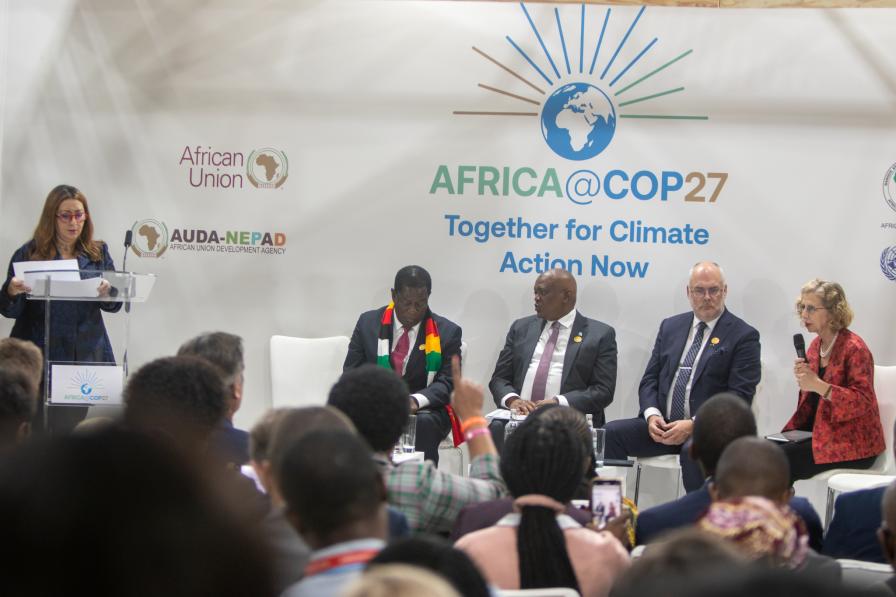About
At what is being referred to as the "African COP," political, industry, and civil society leaders voiced strong condemnations of shortcomings in adaptation financing for Africa.
Against a backdrop of global economic slowdown and political instability, the African continent is making headway in designing initiatives to overcome the worst impact of climate change. Hosted by Mokgweetsi Masisi, President of Botswana, and organized by the United Nations Science-Policy-Business Forum on the Environment (SPBF), this high-level event called for greater leadership and renewed international cooperation to support African-led adaptation efforts.
In introductory remarks, Shereen Zorba, Head, SPBF Secretariat, highlighted concrete examples of such initiatives, including the Egypt-led “Decent Life for a Climate-resilient Africa,” the “Greening National Investment Plans in Africa,” and Botswana’s Technology Hub.
In keynote remarks, President Masisi stressed that Africa is one of the regions most impacted by climate change due to low adaptive capacity. He underlined the continent must be central to global resilience-building efforts because, among other things: without sustainable infrastructure, Africa’s rapid population growth could significantly contribute to greenhouse gas emissions; the continent’s development represents an opportunity for returns on investment; and its rich biodiversity must be protected.
In a panel discussion, Emmerson Dambudzo Mnangagwa, President of Zimbabwe, pointed out that little has been achieved in improving Africa’s adaptation capacity despite the many commitments made at COP 26. He called for countries to commit to promises made and emphasized that Africa should also learn how to mitigate the impacts of climate change. On the role of the international private sector, Presidents Masisi and Dambudzo Mnangagwa underscored the need for a shift in the perception of Africa, highlighting that the continent is “ready” and “wants to participate” in finding solutions.
Alar Karis, President of Estonia, described the benefits Estonia reaped from engaging in a “digital transition” that includes e-governance and cyber security. He then underlined that climate resilience relies on accessible data of quality, pointing to the Data for the Environment Alliance (DEAL), initiated by the Government of Estonia supported by the SPBF, through which over 30 countries are collaborating to create and share environmental data.
Responding to a question on the direction the multilateral system needs to take to support the aspirations of African countries, Inger Andersen, Executive Director, UNEP, emphasized opportunities in Africa due to a “ready and able” market, and encouraged the private sector to think about long-term sustainable investments that are based on partnership and sustainable development.
Panelists then heard from industry leaders. Niklas Gustafsson, Volvo Group, shared that the company is committed to finding sustainable transport solutions around the world, particularly in Africa. He emphasized that Africa needs policies, which promote the development of green energy, and partnerships that support green measures.
Sheri Hinish, IBM, indicated that now is the time for action, since partnerships between technology companies and Africa are ready and capable. In response, Andersen announced the launch of a UNEP project on data and information sharing those environmental ministries around Africa can use as a tool.
In response to a question on the copper industry’s role in realizing Africa’s ambition for decarbonization, Anthony Lea, President, International Copper Association (ICA), discussed ICA’s decarbonization roadmap. He also shared that ICA will be launching the Grid Efficiency and Resiliency Partnership Initiative as part of their commitment to minimize grid losses in Africa.
Sébastien Riez, Schneider Electric, said access to renewable energy is crucial to the growth of multiple sectors, including business, healthcare, and others. Among key factors enabling the expansion of Signify’s work in Africa, Mohamed Saad, Signify Northeast Africa, emphasised: sound government regulations on the deployment of technology; partnerships with multilateral organizations on financing and capacity building; and collaboration between multinational corporations and regional hubs.
Kate Brandt, Google, highlighted Google’s USD 1 billion commitment to support Africa’s digital transformation. This investment, she noted, would include, among other items, artificial intelligence tools to improve responses to flooding as well as humanitarian and climate efforts.
Kevin Urama, African Development Bank, said that, to attract important financing in the form of green bonds and debt for climate swaps, African countries must tackle both their regulatory and political shortcomings. He noted the solution to accelerate the green transition is “financing, financing, and financing.”
Eric Usher, UNEP Finance Initiative, highlighted significant momentum on mitigation with 40% of the banking industry now committed to the Net-Zero Banking Alliance, but said there is still not enough emphasis on adaptation. He called for a new compact for public-private financing, concluding that “Africa is where it can be done.”
Djatougbe Aziaka, UNEP NGOs Major Group, said three words stood out from the various interventions: collaboration, co-creation, and partnerships. She highlighted the role of civil society organizations in contributing local knowledge to relevant partnerships.
Organizers: The UN-SPBF in cooperation with the African Union Commission, the African Ministerial Conference on Meteorology, and UNEP’s Regional Office for Africa.
Contact: Shereen Zorba, shereen.zorba@un.org
For more information: un-spbf.org
To receive free coverage of global environmental events delivered to your inbox, subscribe to the ENB Update newsletter.
All ENB photos are free to use with attribution. For photos from this side event, please use: Photo by IISD/ENB | Matthew TenBruggencate.
